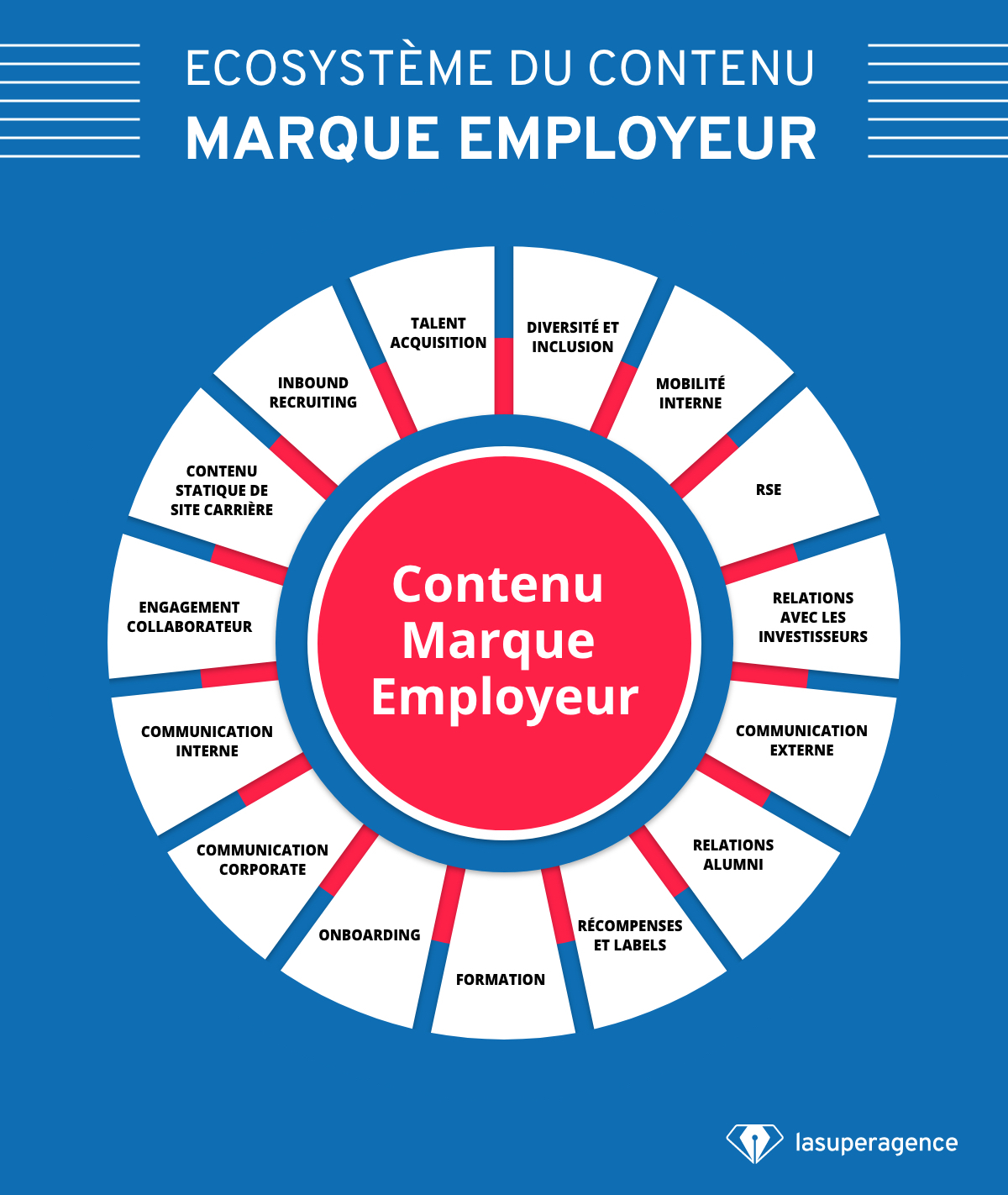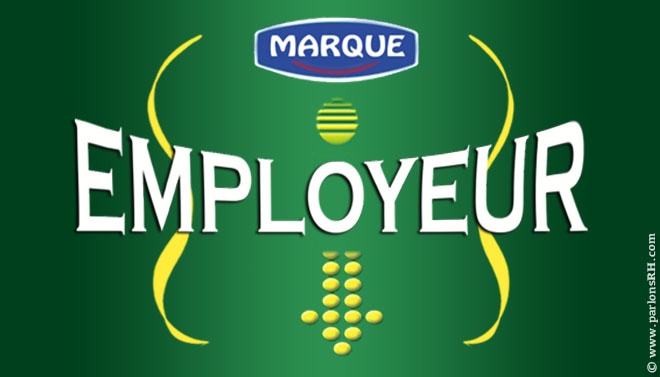When you think about 2020, predicting the next twelve months may seem a little scary.
That said, Employer Brand strategy has undergone monumental changes in recent months and has become increasingly recognized as a critical component of effectiveness in the HR world.
2021 is therefore the time to develop your Employer Brand!
Develop a much more personal EVP message
In 2020, the number of companies working their employee value propositions (EVPs)has increased dramatically. As a result, it is becoming increasingly difficult for companies to create an EVP that truly differentiates itself from its competitors to attract top talent.
Many candidates look at PVEs within the same industry without necessarily seeing differences in what is conveyed. For the sake of not clashing with corporate communication, PVEs are therefore increasingly watered down and have less impact on the targeted candidates.

Today, employers are looking to connect on a more personal level to gain trust and preference in the eyes of candidates. Organizations must therefore align with the values of the candidates they wish to attract.
In 2021, then, the trend will be toward an EVP that offers an expanded and personalized message based on role, generation, life stage, and region.
The goal is to focus on external talent sourcing to broaden your knowledge of the segments. You must measure personality, personalized experiences and communication as well as recruitment Marketing campaigns.
It is important for employers to define KPIS indicators and monitor performance analysis related to the Brand's custom employer segments.
Focus on corporate social equity and sustainability
In 2021, Employer Brand practitioners are going to be forced to take meaningful stands on social issues. Indeed, hundreds of leaders and well-known brands have been publicly denounced, boycotted and held accountable for inequality during 2020.
While there are new expectations from talent in 2021, corporate citizenship continues to evolve and Generation Z is demanding significant changes from employers.
In a recent global study conducted by Deloitte with Gen Y and Gen Z, there was a clear indication that social equity plays a major role in determining who their ideal employers are.
In fact, nearly three-quarters of respondents said the pandemic has made them more sensitive to the needs of others and that they intend to take steps to positively impact their communities. They also don't hesitate to sanction companies whose values declared and practiced conflict with their own.
Another study found that for 83% of Generation Z candidates a company's commitment to diversity and inclusion was important when choosing an employer.
In 2021, your Employer Brand will need to better align with your corporate strategy while amplifying DE&I ( Diversity, Equity and Inclusion) and CSR strategies. This work will need to be included in:
- Your EVP research efforts
- The development of the brand concept
- The activation strategy
- Media campaigns
- The recruitment materials
- Candidate and employee experience programs
Organizations that fail to combine ED&I, CSR, and Employer Brand in 2021 risk not only losing talent to the competition, but also losing potential customers and market share.
Develop an agile and remote culture
Pandering and remote work have forced organizations to reinvent their own work processes. Corporate cultures have become virtual meeting environments, with technology-driven process changes and massive efforts to drive innovation.
2020 was a year when everyone did what they could to make the new world of work succeed. Nonetheless, the employer brand and culture have been victims of this change.
It wasn't that long ago that an employer would highlight the company itself to attract candidates as well as the atmosphere in the office. Today, we define culture based on employees' online experiences and connections.
In today's world, corporate cultures are experienced not only by your employees and candidates being interviewed, but also by their family members who may be listening in on team meetings.
The culture of a company is now described by how effectively employees can balance personal obligations and work commitments at home.
 Employer branding needs to focus more than ever on brand image and improving the employee experience.
Employer branding needs to focus more than ever on brand image and improving the employee experience.
That's why in 2021, more and more culture and organizational design leaders will emerge to develop their Employer Brand strategy. The goal being to achieve impactful engagement and retention results.
For a company to get its results it will be critical for it to implement much more personalized and person-based talent experience programs, as well as recognition and rewards programs.
Focus on the story
Many individuals think that the purpose of an Employer Brand is to recruit talent. This is simply not true!
A well-crafted Employer Brand narrative allows employees and external talent to immerse themselves in the workplace culture.
Companies that are consistently named as having the best employer brands, praised by talent, don't just market their job openings, but tell compelling stories about why working there is the most exciting and impactful experience possible.
Decathlon, Axa, Michelin have done a brilliant job of integrating a clear and inspiring vision of what a life and career would be like in their organizations.
Today, it is harder than ever to capture the interest of talent. Indeed, we are in an era of shortened attention spans and increasing volumes of content. A career site and a LinkedIn post once a week are no longer enough to have a measurable impact.
2021 is ripe for change. As more and more employers compete for the same pool of technical talent, a focused investment in amplifying the message and launching advertising campaigns and remarketing efforts will be essential for the next few years of business transformation.
Employer Brand leaders should think about investing in solutions that help them present themselves in new streams, stand out to new talent and compel this talent pool to seek out and follow your company.
 Employer branding is more than just a message
Employer branding is more than just a message
Treat your freelancers correctly
Historically, employers viewed freelancers as short-term assets hired to complete a specific project. Culture, commitment, experience did not matter to them.
In fact, for many large organizations, overseeing procurement was the primary focus setting aside human resources.
Yet, here we are, facing 2021 with more talent seeking temporary and contract assignments versus full-time jobs to better align with personal and independence values. These freelance workers have a clear experience and vision of your company's culture.
This year will see more employers researching and developing value propositions for freelance work. They will seek to understand and improve their work experiences and promote more opportunities.
Measure your work to give it its proper importance
It's amazing how few organizations in 2021 still struggle to measure the impact and value of their Employer Brand work.
HR often struggles to launch monthly analytics on new applicants, career site visits, social media impact or advertising spend impact.
There are several key performance indicators you should monitor on a regular basis, including turnover rate, the number of days a position remains vacant and the rate of applications received when a job posting is made (not to mention the qualification rate of those applicants).
These KPIS will allow you to track your progress and give you insights into areas for improvement.








